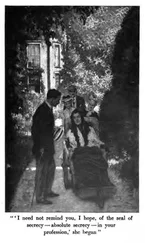Rudyard Kipling - Actions and Reactions
Здесь есть возможность читать онлайн «Rudyard Kipling - Actions and Reactions» — ознакомительный отрывок электронной книги совершенно бесплатно, а после прочтения отрывка купить полную версию. В некоторых случаях можно слушать аудио, скачать через торрент в формате fb2 и присутствует краткое содержание. Жанр: Классическая проза, foreign_antique, foreign_prose, foreign_sf, на английском языке. Описание произведения, (предисловие) а так же отзывы посетителей доступны на портале библиотеки ЛибКат.
- Название:Actions and Reactions
- Автор:
- Жанр:
- Год:неизвестен
- ISBN:нет данных
- Рейтинг книги:3 / 5. Голосов: 1
-
Избранное:Добавить в избранное
- Отзывы:
-
Ваша оценка:
- 60
- 1
- 2
- 3
- 4
- 5
Actions and Reactions: краткое содержание, описание и аннотация
Предлагаем к чтению аннотацию, описание, краткое содержание или предисловие (зависит от того, что написал сам автор книги «Actions and Reactions»). Если вы не нашли необходимую информацию о книге — напишите в комментариях, мы постараемся отыскать её.
Actions and Reactions — читать онлайн ознакомительный отрывок
Ниже представлен текст книги, разбитый по страницам. Система сохранения места последней прочитанной страницы, позволяет с удобством читать онлайн бесплатно книгу «Actions and Reactions», без необходимости каждый раз заново искать на чём Вы остановились. Поставьте закладку, и сможете в любой момент перейти на страницу, на которой закончили чтение.
Интервал:
Закладка:
“Less than half what we paid for our old yacht when we married. And we didn’t have a good time in her. You were – ”
“Well, I discovered I was too much of an American to be content to be a rich man’s son. You aren’t blaming me for that?”
“Oh, no. Only it was a very businesslike honeymoon. How far are you along with the deal, George?”
“I can mail the deposit on the purchase money to-morrow morning, and we can have the thing completed in a fortnight or three weeks – if you say so.”
“Friars Pardon – Friars Pardon!” Sophie chanted rapturously, her dark gray eyes big with delight. “All the farms? Gale Anstey, Burnt House, Rocketts, the Home Farm, and Griffons? Sure you’ve got ‘em all?”
“Sure.” He smiled.
“And the woods? High Pardons Wood, Lower Pardons, Suttons, Dutton’s Shaw, Reuben’s Ghyll, Maxey’s Ghyll, and both the Oak Hangers? Sure you’ve got ‘em all?”
“Every last stick. Why, you know them as well as I do.” He laughed. “They say there’s five thousand – a thousand pounds’ worth of lumber – timber they call it – in the Hangers alone.”
“Mrs. Cloke’s oven must be mended first thing, and the kitchen roof. I think I’ll have all this whitewashed,” Sophie broke in, pointing to the ceiling. “The whole place is a scandal. Lady Conant is quite right. George, when did you begin to fall in love with the house? In the greenroom that first day? I did.”
“I’m not in love with it. One must do something to mark time till one’s fit for work.”
“Or when we stood under the oaks, and the door opened? Oh! Ought I to go to poor Iggulden’s funeral?” She sighed with utter happiness.
“Wouldn’t they call it a liberty now?” said he.
“But I liked him.”
“But you didn’t own him at the date of his death.”
“That wouldn’t keep me away. Only, they made such a fuss about the watching” – she caught her breath – “it might be ostentatious from that point of view, too. Oh, George” – she reached for his hand – “we’re two little orphans moving in worlds not realized, and we shall make some bad breaks. But we’re going to have the time of our lives.”
“We’ll run up to London to-morrow, and see if we can hurry those English law solicitors. I want to get to work.”
They went. They suffered many things ere they returned across the fields in a fly one Saturday night, nursing a two by two-and-a-half box of deeds and maps – lawful owners of Friars Pardon and the five decayed farms therewith.
“I do most sincerely ‘ope and trust you’ll be ‘appy, Madam,” Mrs. Cloke gasped, when she was told the news by the kitchen fire.
“Goodness! It isn’t a marriage!” Sophie exclaimed, a little awed; for to them the joke, which to an American means work, was only just beginning.
“If it’s took in a proper spirit” – Mrs. Cloke’s eye turned toward her oven.
“Send and have that mended to-morrow,” Sophie whispered.
“We couldn’t ‘elp noticing,” said Cloke slowly, “from the times you walked there, that you an’ your lady was drawn to it, but – but I don’t know as we ever precisely thought – ” His wife’s glance checked him.
“That we were that sort of people,” said George. “We aren’t sure of it ourselves yet.”
“Perhaps,” said Cloke, rubbing his knees, “just for the sake of saying something, perhaps you’ll park it?”
“What’s that?” said George.
“Turn it all into a fine park like Violet Hill” – he jerked a thumb to westward – “that Mr. Sangres bought. It was four farms, and Mr. Sangres made a fine park of them, with a herd of faller deer.”
“Then it wouldn’t be Friars Pardon,” said Sophie. “Would it?”
“I don’t know as I’ve ever heard Pardons was ever anything but wheat an’ wool. Only some gentlemen say that parks are less trouble than tenants.” He laughed nervously. “But the gentry, o’ course, they keep on pretty much as they was used to.”
“I see,” said Sophie. “How did Mr. Sangres make his money?”
“I never rightly heard. It was pepper an’ spices, or it may ha’ been gloves. No. Gloves was Sir Reginald Liss at Marley End. Spices was Mr. Sangres. He’s a Brazilian gentleman – very sunburnt like.”
“Be sure o’ one thing. You won’t ‘ave any trouble,” said Mrs. Cloke, just before they went to bed.
Now the news of the purchase was told to Mr. and Mrs. Cloke alone at 8 P.M. of a Saturday. None left the farm till they set out for church next morning. Yet when they reached the church and were about to slip aside into their usual seats, a little beyond the font, where they could see the red-furred tails of the bellropes waggle and twist at ringing time, they were swept forward irresistibly, a Cloke on either flank (and yet they had not walked with the Clokes), upon the ever-retiring bosom of a black-gowned verger, who ushered them into a room of a pew at the head of the left aisle, under the pulpit.
“This,” he sighed reproachfully, “is the Pardons’ Pew,” and shut them in.
They could see little more than the choir boys in the chancel, but to the roots of the hair of their necks they felt the congregation behind mercilessly devouring them by look.
“When the wicked man turneth away.” The strong, alien voice of the priest vibrated under the hammer-beam roof, and a loneliness unfelt before swamped their hearts, as they searched for places in the unfamiliar Church of England service. The Lord’s Prayer “Our Father, which art” – set the seal on that desolation. Sophie found herself thinking how in other lands their purchase would long ere this have been discussed from every point of view in a dozen prints, forgetting that George for months had not been allowed to glance at those black and bellowing head-lines. Here was nothing but silence – not even hostility! The game was up to them; the other players hid their cards and waited. Suspense, she felt, was in the air, and when her sight cleared, saw, indeed, a mural tablet of a footless bird brooding upon the carven motto, “Wayte awhyle – wayte awhyle.”
At the Litany George had trouble with an unstable hassock, and drew the slip of carpet under the pewseat. Sophie pushed her end back also, and shut her eyes against a burning that felt like tears. When she opened them she was looking at her mother’s maiden name, fairly carved on a blue flagstone on the pew floor: Ellen Lashmar. ob. 1796. aetat 27.
She nudged George and pointed. Sheltered, as they kneeled, they looked for more knowledge, but the rest of the slab was blank.
“Ever hear of her?” he whispered.
“Never knew any of us came from here.”
“Coincidence?”
“Perhaps. But it makes me feel better,” and she smiled and winked away a tear on her lashes, and took his hand while they prayed for “all women labouring of child” – not “in the perils of childbirth”; and the sparrows who had found their way through the guards behind the glass windows chirped above the faded gilt and alabaster family tree of the Conants.
The baronet’s pew was on the right of the aisle. After service its inhabitants moved forth without haste, but so as to block effectively a dusky person with a large family who champed in their rear.
“Spices, I think,” said Sophie, deeply delighted as the Sangres closed up after the Conants. “Let ‘em get away, George.”
But when they came out many folk whose eyes were one still lingered by the lychgate.
“I want to see if any more Lashmars are buried here,” said Sophie.
“Not now. This seems to be show day. Come home quickly,” he replied.
A group of families, the Clokes a little apart, opened to let them through. The men saluted with jerky nods, the women with remnants of a curtsey. Only Iggulden’s son, his mother on his arm, lifted his hat as Sophie passed.
Читать дальшеИнтервал:
Закладка:
Похожие книги на «Actions and Reactions»
Представляем Вашему вниманию похожие книги на «Actions and Reactions» списком для выбора. Мы отобрали схожую по названию и смыслу литературу в надежде предоставить читателям больше вариантов отыскать новые, интересные, ещё непрочитанные произведения.
Обсуждение, отзывы о книге «Actions and Reactions» и просто собственные мнения читателей. Оставьте ваши комментарии, напишите, что Вы думаете о произведении, его смысле или главных героях. Укажите что конкретно понравилось, а что нет, и почему Вы так считаете.












